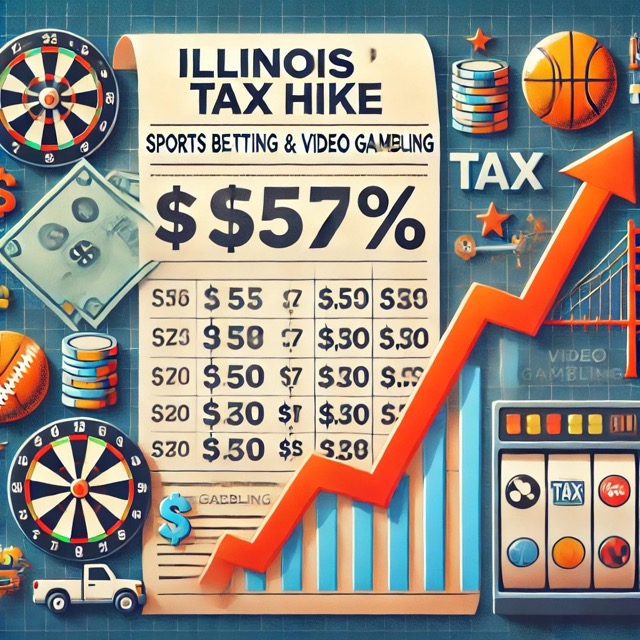
Illinois is making a bold bet on its rapidly growing gambling industry to solve its budgetary issues. By raising taxes on both sports betting and video gambling, the state aims to generate substantial new revenue for infrastructure projects and other essential services. While this strategy makes sense given the explosive growth of these markets, it’s also a risky move that could have unintended consequences for operators and consumers alike.
The sports betting industry, in particular, is feeling the squeeze. The new graduated tax structure, which ranges from 20% to 40% depending on earnings, is a significant hike from the previous flat rate of 15%. While larger operators may be able to absorb these costs, smaller sportsbooks could struggle to stay competitive. With Illinois now home to the fourth-largest sports betting market in the U.S., this tax increase has the potential to slow growth, particularly if operators are forced to pass these costs onto consumers.
Video gambling, on the other hand, continues to thrive despite the tax hike. The industry has become the largest in the U.S., generating millions in revenue for the state. While a 1% increase in taxes may seem modest, it’s still likely to impact small businesses like bars and restaurants that rely on video gambling terminals to attract customers. For now, Illinois’ gamble appears to be paying off, with the new taxes projected to bring in an additional $235 million. But the long-term effects on the industry remain to be seen.







